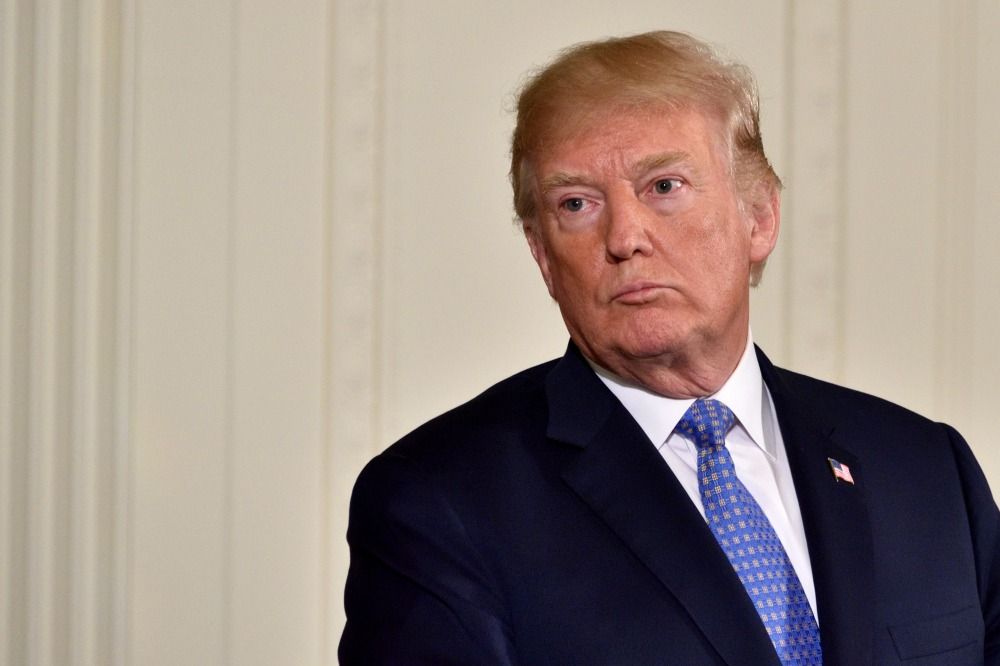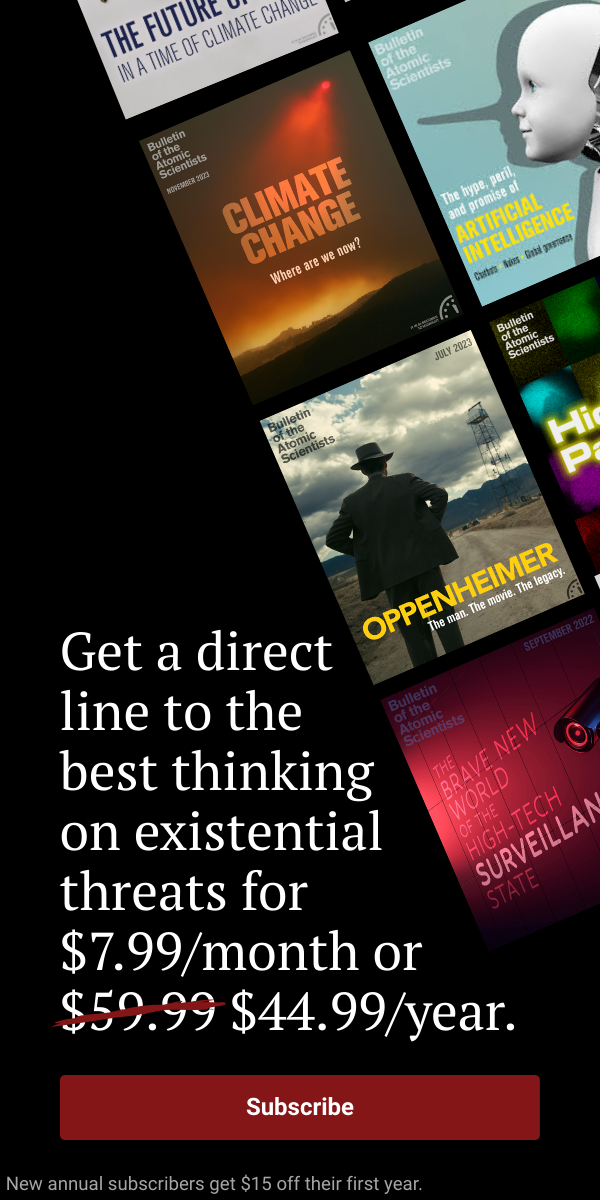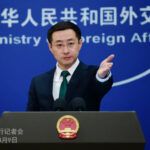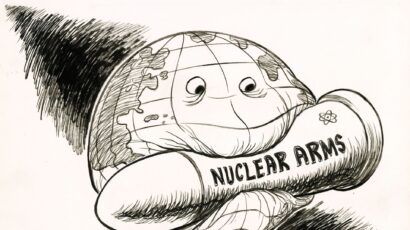Henry Sokolski, Nonproliferation Policy Education Center, executive director, EXPERT COMMENTARY
Nuclear critics contend that the United States subsidizes commercial nuclear activities too much, while nuclear lobbyists insist Washington should do far more. President elect Trump has yet to weigh in. Instead, he’s made a larger point: The “biggest problem, to me, in the world,” he claims, is “nuclear capability.” He claims he “hates nuclear more than any[thing].” This creates a dilemma. If nuclear weapons and their further spread are bad, should we lean on Americans to spend more on US nuclear projects that would unnecessarily set dangerous nuclear proliferation precedents for the rest of the world?
Nuclear nonproliferation, like charity, after all, starts at home. Push “pro-nuclear” corporate cronyism domestically, and you can pretty much forget persuading other governments to forgo money-losing, proliferation-prone nuclear commercialization projects of their own--e.g., uneconomic power reactors (large or small), plutonium-generating fast reactors, spent fuel reprocessing plants, or additional national uranium enrichment capacity. All these bomb-starter-kit projects are financial rabbit holes that no private bank will finance. In the United States, they are impossible to sustain without new, additional government handouts--tax breaks, federal loan guarantees, liability caps, clean energy credits, targeted appropriations, and the like. Give in to the nuclear lobby here, then, and you give alibis for every would-be bomb maker overseas to follow.
Why would Trump ever get behind this? Culture wars is one answer. If subsidizing nuclear power drives my political detractors nuts (that is, the environmental, Saturday Night Live–watching, Brooklyn-bound progressive, New York Times-reading, save-the-planet Starbucks crowd), it must be good. Then, there’s making America great again. Trump was 25 when Washington got drunk on national commercialization patriotism, pushing such “winners” as the supersonic transport plane, the space shuttle, and the Clinch River Breeder Reactor. Nixon liked it. It was fun. Why not push nuclear commercialization black hole analogues--advanced integrated fast reactor fuel cycle systems, small modular reactors, advanced domestic enrichment programs, MOX fuel fabrication efforts--now?
Such a program certainly would align well with the populist (Stephen Bannon) call for “economic nationalism,” aka deficit spending to build infrastructure. What’s infrastructure? Whatever you can convince the new administration is desirable. The nuclear industry has already made it clear what it wants. Why not fund it?
The short answer is: It costs too much. The long answer is a bit more complicated. Trump contends that success requires not just being “pragmatic” and “positive,” but “realistic.” This, he argues, puts a premium on being “informed.” Many, of course, dismiss Trump as being totally oblivious to facts. This, however, is a mistake. His electoral success, after all, was tied to a fairly savvy exploitation of advice and sophisticated data mining. Whatever you may think of him, it pays to remain curious.
What else, then, does Trump think?
Well, he is very eager to get back the $2.5 trillion American corporations have sent overseas. He also is blunt about the Export-Import Bank, which he describes as a “one-way-street,” “feather-bedding” arrangement that benefits “a few companies” that could “do well with out it.” He also doesn’t like it because he doesn't think it is necessary.
Nuclear lobbyists in Washington have a somewhat different view. They want Congress to fully fund the bank so they can tap it for billions of dollars to subsidize Westinghouse and General Electric reactor exports to China, India, and beyond. Subsidizing these exports, they argue, is essential to avoid “unilateral trade disarmament” for American reactor vendors.
There is only one problem: The most dominant “US” export reactor firm based in the United States--Westinghouse--is wholly foreign-owned (by Toshiba and Kazakatom) and the second largest US reactor firm--GE--hands over 80 percent of its export profits to a foreign stockholder (Mitsubishi). When Trump speaks about there having to be “a level playing field where everyone can compete fairly” and decries how “wrong and unfair” it is for the working class to “bail out out billon-dollar companies,” he probably has these foreign-owned, multinational, federal subsidy-seeking entities in mind.
As for leveling the playing field, there are two ways to go about it. One can pump up subsidies and handouts for firms and interest groups that get less than their competitors. The other is to eliminate energy handouts and lift restrictions on competition as much as possible. Trump has said plenty against Solyndra, Fisher, and renewable subsidies. He has said even more about the virtues of tapping more oil and gas and “lifting the restrictions on all sources of American energy.” As for handouts, he’s been mum.
What will Trump ultimately do? Much depends on how eager he is to conflate building out infrastructure with walking back his reservations on global warming and carbon taxes. The nuclear industry is counting on him doing both, but, I suspect, the odds of this are no more than even. Then, there is the issue of nuclear proliferation: How much does Trump want to avoid being accused of encouraging Japan, South Korea, and Saudi Arabia to “go nuclear” or helping China produce and stockpile more bomb-usable fuels?” Judging from his and his Vice President-elect’s denials of nuclear lust, you’ve got to think plenty.
The endgame, of course, remains fuzzy. Trump claims he is “not OK” with even some nuclear proliferation. If so, at a minimum, he shouldn’t rush to force Americans to underwrite more nuclear bailouts, which will only make his nonproliferation policy efforts even less likely to succeed than his predecessor’s.
















